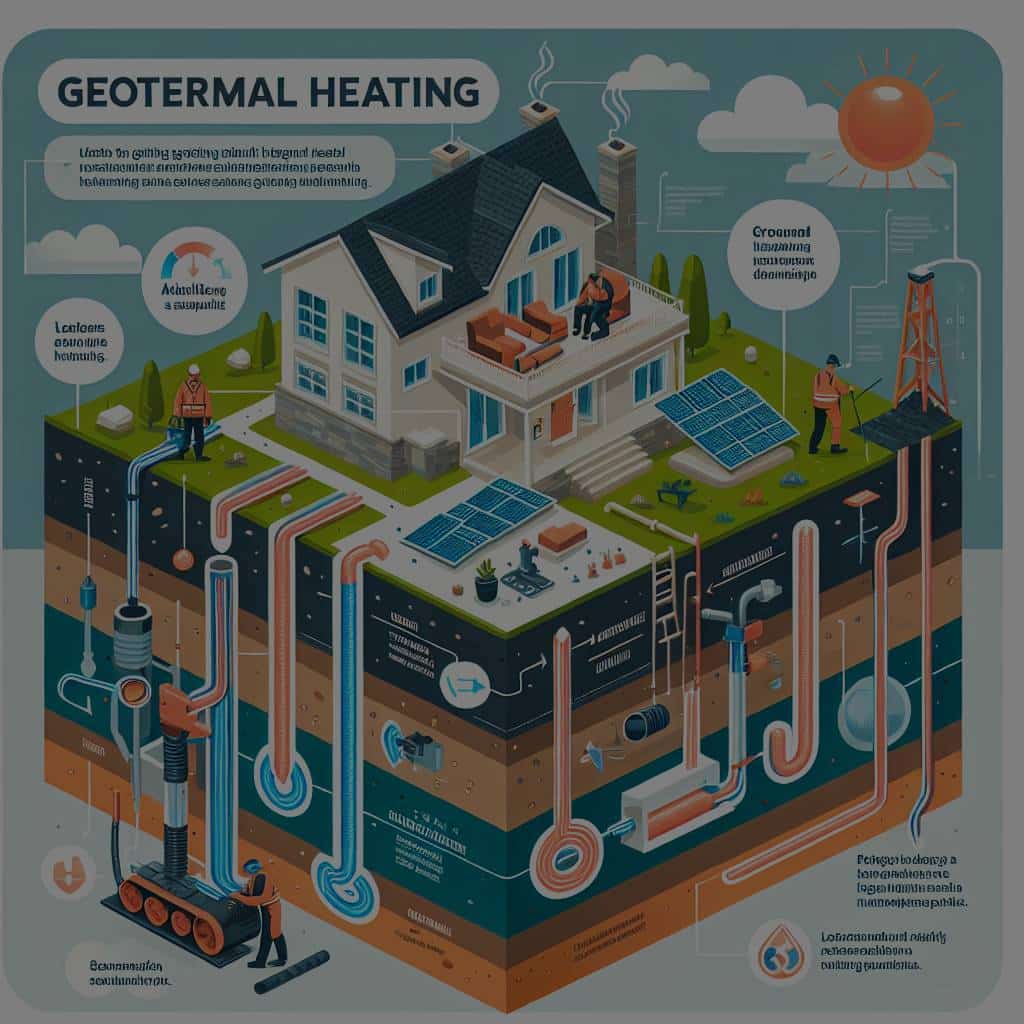How to Utilize Geothermal Heating in Residential Real Estate Developments?

In the realm of residential real estate, there is a growing trend towards sustainable and energy-efficient solutions. One such option that is rapidly gaining traction is geothermal heating. This innovative technology taps into the Earth’s natural heat to offer a reliable and eco-friendly heating system for homes. This article will delve into the ins and outs of geothermal heating, covering everything from the basics to how it can be integrated into residential real estate developments.
Understanding Geothermal Heating
Before we delve into how geothermal heating can be utilized in residential real estate, it’s important to grasp what it is and how it works.
A lire aussi : What Role Can Real Estate Play in Urban Agriculture and Food Security?
Simply put, geothermal heating is a method of harnessing the Earth’s natural heat to warm a home. Several meters below the Earth’s surface, the temperature remains relatively constant, regardless of the season. Geothermal systems take advantage of this by circulating a fluid through a series of underground loops, which absorb heat and carry it back to the house.
The system is comprised of three main components: a geothermal heat pump to circulate the fluid, the underground loops to absorb the heat, and a distribution system to distribute the heated air or water throughout the home.
Cela peut vous intéresser : What Is the Impact of Autonomous Vehicle Technology on Future Real Estate Planning?
With this understanding, we can delve into the key benefits of geothermal heating and how it can be integrated into residential real estate developments.
Key Benefits of Geothermal Heating
Geothermal heating systems offer numerous benefits that make them an attractive choice for homeowners and real estate developers alike.
For starters, geothermal systems are incredibly energy-efficient. They deliver up to four units of heat for every unit of electricity used, making them up to 400% efficient. In comparison, traditional heating systems rarely exceed 100% efficiency.
Next, geothermal heating is environmentally friendly. It produces fewer greenhouse emissions compared to conventional heating systems, contributing significantly less to global warming.
Finally, geothermal systems are cost-effective. Although the upfront installation costs may be higher, the energy savings over time result in a return on investment. Moreover, they require less maintenance and have a longer lifespan than traditional heating systems.
With these key benefits in mind, let’s explore how to implement geothermal heating in residential real estate developments.
Incorporating Geothermal Heating in Real Estate Developments
Incorporating geothermal heating in residential real estate developments requires careful planning and execution.
To start, the ground conditions of the development site must be assessed. This includes the soil type, depth to bedrock, and availability of groundwater. These factors determine the type of geothermal system to be installed – either a closed-loop or open-loop system.
Next, the heating and cooling demands of the homes must be calculated. This information is used to size the geothermal system correctly.
Then, the installation of the geothermal system takes place. This involves drilling holes for the geothermal loops, installing the heat pump, and setting up the distribution system.
Finally, it’s crucial to educate homeowners about the operation and benefits of their geothermal system. This includes explaining how the system works, its energy savings potential, and its environmental impact.
Future of Geothermal Heating in Residential Real Estate
There’s no denying that geothermal heating has a bright future in residential real estate. As consumers and developers become more eco-conscious, the demand for sustainable and energy-efficient heating solutions is set to rise.
Moreover, advances in technology are expected to make geothermal systems more accessible and affordable. This includes improvements in drilling techniques, heat pump technology, and energy storage solutions.
Furthermore, policy incentives can play a pivotal role in promoting geothermal heating. For instance, tax credits and grants can offset the installation costs, making it more appealing to homeowners and developers.
In conclusion, geothermal heating presents a viable and promising solution for sustainable heating in residential real estate developments. By understanding its workings, benefits, and implementation process, developers can successfully integrate this technology into their projects and contribute to a more sustainable future.
Impact of Geothermal Heating on Property Value
When considering the implementation of geothermal heating in residential real estate, it’s crucial to weigh its impact on property value.
Properties equipped with geothermal heating systems often command higher prices in the real estate market. The reason is twofold. Firstly, the energy efficiency of geothermal systems translates into lower utility bills, which is a strong selling point for potential buyers. Secondly, the green credentials of geothermal heating are appealing to a growing number of eco-conscious consumers. This alignment with sustainability trends can increase a property’s appeal and, consequently, its value.
In addition, geothermal heating systems contribute to a home’s comfort and functionality. They provide consistent, even heat without the noise and drafts associated with conventional heating systems. This enhanced comfort can be another attractive feature for homebuyers.
Furthermore, geothermal systems have a longer lifespan compared to traditional heating systems. This durability can further increase a property’s value by reducing future maintenance and replacement costs.
However, it’s worth noting that the market’s appreciation of geothermal systems may vary depending on the local context and the awareness and understanding of geothermal technology among local buyers.
Conclusion: Geothermal Heating and the Future of Residential Properties
In conclusion, geothermal heating represents an exciting frontier in residential real estate development. As the pressures of climate change and energy costs continue to mount, more developers are likely to turn to this innovative and sustainable technology.
Geothermal heating is not a mere trend but a major shift in how we think about and approach home heating. This shift is driven by a combination of factors, including advances in technology, increasing environmental awareness, and policy incentives. With its numerous benefits, such as high energy efficiency, cost-effectiveness, and positive environmental impact, geothermal heating systems are poised to redefine residential heating solutions.
That being said, successful integration of geothermal heating in residential real estate requires adequate planning, correct installation, and homeowner education. As developers and consumers alike grow more familiar with this technology, geothermal heating is expected to become a standard feature in new home developments.
In this era of sustainability, embracing geothermal heating is more than an environmentally responsible choice. It also presents a valuable opportunity to enhance property values and appeal to a wide range of homebuyers. Thus, geothermal heating is not only powering our homes but also shaping the future of residential real estate.
